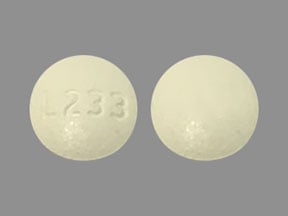
Modafinil Coupons & Savings Card – Discount Prices from $13.14
Generic for: Provigil
Modafinil, also known by its brand name Provigil, is a prescription medication designed to enhance wakefulness in individuals experiencing excessive sleepiness due to conditions like narcolepsy, obstructive sleep apnea, or shift work disorder. While it does not cure these disorders or replace the need for sufficient sleep, it aids in maintaining alertness during waking hours. The exact mechanism by which modafinil operates is not fully understood, but it is believed to influence specific areas in the brain responsible for regulating wakefulness and alertness.
It is important to note that modafinil is classified as a controlled substance because it has potential for misuse. Therefore, it should not be used to combat regular tiredness in people without a diagnosed sleep disorder. Users should avoid alcohol and consult healthcare professionals regarding potential interactions with other medications. Common side effects include headache and nausea. Always seek advice from a doctor, nurse, or pharmacist to ensure that modafinil is safe and appropriate for your use.
Our coupons are free to use. Before paying, show the pharmacist your Modafinil savings card to get your free discount. Use our filters below to edit the prescription box to match your needs. The Modafinil prices will update based on your prescription needs. Above our Modafinil coupons, you can change your location to see pharmacy prices and costs in other areas. We're here to help you buy Modafinil at the lowest price with our prescription discount card.
My prescription
Edit
100MG, Modafinil (30 Tablets)
Select pharmacy

CVS
$22.48
COUPON PRICE
Walmart
$13.14
COUPON PRICE
Walgreens
$16.77
COUPON PRICE
Albertsons
$23.57
COUPON PRICEModafinil savings card
Show this card to your pharmacist
Walmart
$13.14
BIN
ID
PCN
GRP
019876
LH542808B3
CHIPPO
LHX
Powered by
Modafinil, also known by its brand name Provigil, is a prescription medication designed to enhance wakefulness in individuals experiencing excessive sleepiness due to conditions like narcolepsy, obstructive sleep apnea, or shift work disorder. While it does not cure these disorders or replace the need for sufficient sleep, it aids in maintaining alertness during waking hours. The exact mechanism by which modafinil operates is not fully understood, but it is believed to influence specific areas in the brain responsible for regulating wakefulness and alertness.
It is important to note that modafinil is classified as a controlled substance because it has potential for misuse. Therefore, it should not be used to combat regular tiredness in people without a diagnosed sleep disorder. Users should avoid alcohol and consult healthcare professionals regarding potential interactions with other medications. Common side effects include headache and nausea. Always seek advice from a doctor, nurse, or pharmacist to ensure that modafinil is safe and appropriate for your use.
Our coupons are free to use. Before paying, show the pharmacist your Modafinil savings card to get your free discount. Use our filters below to edit the prescription box to match your needs. The Modafinil prices will update based on your prescription needs. Above our Modafinil coupons, you can change your location to see pharmacy prices and costs in other areas. We're here to help you buy Modafinil at the lowest price with our prescription discount card.
More prescriptions for sleep apnea
coupons from$13.14Save 72%
coupons from$28.81Save 73%
coupons from$28.81Save 73%
coupons from$952.18Save 59%
coupons from$17.04Save 81%
More prescriptions for sleep apnea
Provigil Save 72%coupons from $13.14
Nuvigil Save 73%coupons from $28.81
Armodafinil Save 73%coupons from $28.81
Sunosi Save 59%coupons from $952.18
Caffeine Citrated Save 81%coupons from $17.04
Modafinil dosage forms
Use our Modafinil 100MG coupon with prices from $13.14 for 30 Tablets. You can also use our Modafinil 100MG coupon with prices from $2.85 for 1 Tablet. We have a Modafinil 100MG coupon with prices from $9.59 for 20 Tablets. You can use our Modafinil 100MG coupon with prices from $23.78 for 60 Tablets.
Dosage Quantity Price from Per unit 100MG 30 Tablets $13.14 $0.44 100MG 1 Tablet $2.85 $2.85 100MG 20 Tablets $9.59 $0.48 100MG 60 Tablets $23.78 $0.40 100MG 90 Tablets $38.85 $0.43 100MG 100 Tablets $40.24 $0.40 200MG 1 Tablet $2.96 $2.96 200MG 20 Tablets $11.67 $0.58 200MG 30 Tablets $16.25 $0.54 200MG 60 Tablets $30.00 $0.50
| Dosage | Quantity | Price from | Per unit |
|---|---|---|---|
| 100MG | 30 Tablets | $13.14 | $0.44 |
| 100MG | 1 Tablet | $2.85 | $2.85 |
| 100MG | 20 Tablets | $9.59 | $0.48 |
| 100MG | 60 Tablets | $23.78 | $0.40 |
| 100MG | 90 Tablets | $38.85 | $0.43 |
| 100MG | 100 Tablets | $40.24 | $0.40 |
| 200MG | 1 Tablet | $2.96 | $2.96 |
| 200MG | 20 Tablets | $11.67 | $0.58 |
| 200MG | 30 Tablets | $16.25 | $0.54 |
| 200MG | 60 Tablets | $30.00 | $0.50 |
| 200MG | 90 Tablets | $47.86 | $0.53 |
| 200MG | 100 Tablets | $50.26 | $0.50 |
| 200MG | 180 Tablets | $69.43 | $0.39 |
